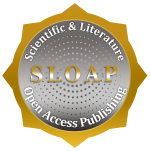- Advertising Policy
- Article Processing Charges
- Article Processing Charges Waiver Policy
- Archiving Policy
- Article Identifier
- Business Model
- Certificate
- Complaints Policy
- Copyright & Licensing Policy
- Correction, Retraction & Withdrawal
- Conflict of Interest, Human and Animal Rights & Informed Consent
- Data Sharing Policy
- Editorial Policy
- Editorial Team Roles
- Editors Guidelines
- Note to Contributors
- Open Access Policy
- Peer Review Policy
- Privacy Statement
- Plagiarism Policy
- Repository Policy
- Reviewer Guidelines
Plagiarism Policy
Plagiarism, where someone assumes another's ideas, words, or other forms of creative expression as one's own, is a clear violation of scientific ethics. Plagiarism may also involve a violation of copyright law, punishable by legal action. Plagiarism may constitute the following:
- Word-for-word, or almost word-for-word copying, or purposely paraphrasing portions of another author's work without clearly indicating the source or marking the copied fragment (for example, by using quotation marks);
- Copying figures or tables from someone else's paper without properly citing the source and/or without permission from the original author or the copyright holder.
Please note that all submissions are thoroughly checked for plagiarism. Any paper which shows obvious signs of plagiarism will be automatically rejected.
If an attempt at plagiarism is found in a paper after having been published in SLOAP, the author will be required to publish a written apology to the authors of the original paper, and further collaboration with the author of plagiarized papers will be terminated.
Plagiarism is a serious issue around the world in the arena of manuscript writing. Plagiarism is the act of taking another person's writing, work, data or even idea intentionally or unintentionally and passing it off as your own. It also includes using other's ideas and words without clearly acknowledging the source of that information. It is also plagiarism to provide someone else's paper as your own or cut and paste text from the Internet to your paper without citing the source.
We expect that the articles submitted to us must adhere to the ethical standards and they should not overlap with other articles published or articles in press. Articles containing plagiarism seriously affect our goal of achieving high standards of quality, uniqueness and innovation. We do respect others’ work and expect the same from our authors.
We are members of Turnitin and Crossreff for using the latest software to detect plagiarism. If potential plagiarism is detected, we will take serious actions against those papers containing plagiarism which may include removing those articles completely from our website and from the websites of the databases in which we are listed and indexed. The editors will contact the authors for clarification, and may also contact the authors’ institution. Original authors can file a complaint against the authors of plagiarized papers. Therefore we request that all our author(s) please adopt the holistic & pragmatic approach to design the manuscript of interest. Hence SLOAP will not be responsible for further action on plagiarism issues. The author will be solely responsible for plagiarism issues. SLOAP Journals will only proceed with an article for publication if the plagiarism result is below 10%.



 This work is licensed under the
This work is licensed under the 